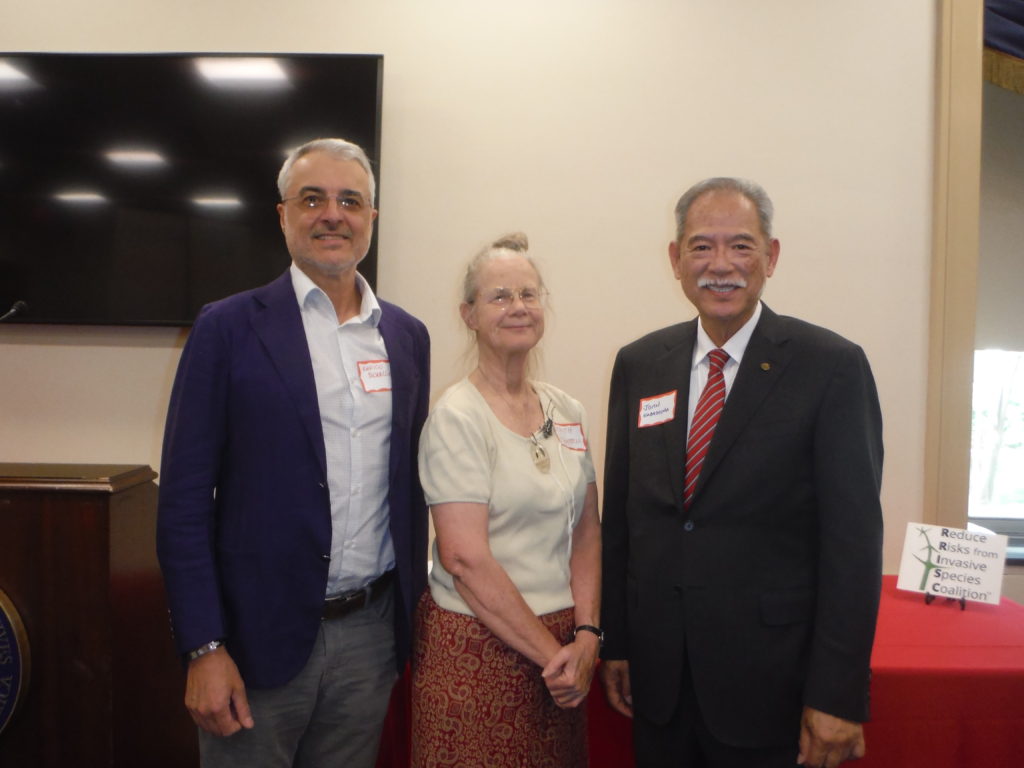As CISP President, I have been working with forest conservationists from across the country to gain Congressional support for programs which would fund programs to explore breeding resistance into pest-decimated tree species. Last year, I focused on amending the Farm Bill – but those efforts had disappointing results.

So I am very pleased to inform you that our principal champion, Rep. Peter Welch of Vermont, has introduced a new, improved! version of his bill to support (1) APHIS tree pest management programs; (2) research into resistance breeding; and (3) putting the results of such research to work in growing and planting resistant tree seedlings.
That bill – H.R. 3244 – can be read here https://www.govtrack.us/congress/bills/116/hr3244/text
Rep. Welch’s bill:
· Expands the APHIS’ access to emergency funding to combat invasive species when existing federal funds are insufficient and broadens the range of actives that these funds can support;
· Establishes a grant program to support institutions focused on researching methods to restore native tree species that have been severely damaged by invasive pests; and
· Authorizes funding to implement promising research findings on how to protect native tree species.
In introducing the bill, Rep. Welch referenced the emerald ash borer. Rest assured that the legislation is not limited to any specific pest; any native tree species suffering high levels of mortality due to non-native pests are eligible.
Please ask your Representative to cosponsor HR. 3244. Ask your Senators to sponsor a companion bill in the Senate.
Awards Presented to Two Key Forest Pest Combatants

The Reduce Risk from Invasive Species Coalition (RRISC) website has recognized the important contribution to combatting forest pest incursions.
John Kabashima received the 2019 Outstanding Volunteer Award for his years of effort to build a coalition that persuaded California phytosanitary agencies to address the polyphagous and Kuroshio shot hole borers. John, who had recently retired from the state university extension service, volunteered in 2016 to try to persuade the California Department of Food and Agriculture to address the shot hole borers. Steps to success included organizing an “Invasive Species Summit” in January 2018 to develop consensus recommendations; working with the staffs of two members of the state Assembly to develop legislation that provided funding for invasive species management, with $5 million allocated to the shot hole borers. The process of identifying specific actions involved dozens of people who have been working on the borers – in the absence of state funding or engagement – over the same period.
Pierluigi (Enrico) Bonello of The Ohio State won the award for Outstanding Innovation for his work developing a chemical process that allows rapid identification of trees that are resistant to introduced pathogens. His initial work focused on coast live oaks resistant to the sudden oak death pathogen. Colleagues have also used the technique in Europe to identify ash trees resistant to ash dieback caused by Hymenoscyphus fraxineus.
RRISC has posted more information about these and the additional award recipients here
Posted by Faith Campbell
We welcome comments that supplement or correct factual information, suggest new approaches, or promote thoughtful consideration. We post comments that disagree with us — but not those we judge to be not civil or inflammatory.
indeed forest areas are dwindling, with the opening of many industries that have made forests depleted. Laws and regulations must be clear to those who violate sanctions